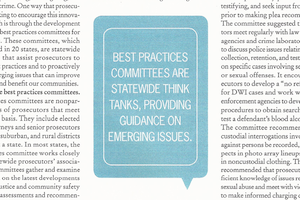We Need Examples of Cases Hindered By “Going Dark”
Encryption of smartphones and other digital media has thwarted law enforcement’s ability to keep communities safe. Even with a lawfully issued search warrant, the information requested cannot be accessed from encrypted phones. This loss of evidence is referred to as “Going Dark.”
To demonstrate the real dangers of Going Dark, we need to hear about your affected cases. Helpful examples include cases where evidence in a smart phone is unattainable due to encryption, but could have been critical in solving cases such as a homicide, a robbery, a lost child, or a terrorist attack.
Read More

